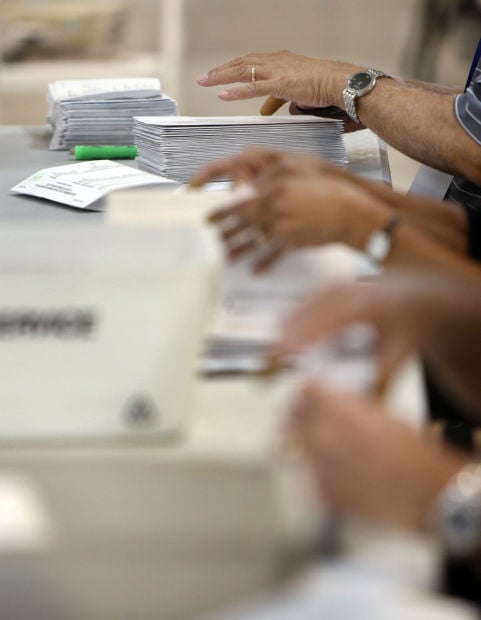PHOENIX — Unwilling to wait to even see what’s proposed, the state Republican Party has started raising money to quash a plan to create an “open primary” system.
Party Chairman Robert Graham said it’s important for the GOP to do what it can to ensure the current partisan system for elected officials remain in place. He hopes to raise $1 million for the effort.
The move bemused former Phoenix Mayor Paul Johnson, who is heading the open primary proposal.
Johnson pointed out that he has yet to actually craft the language for the plan that would amend the Arizona Constitution. In fact, he said, it remains unclear whether it will be ready for the 2016 ballot.
He charged that Graham and his Republican allies are jumping the gun for financial reasons: Some of the dollars raised, either directly or by outside “dark money” groups, could end up going to pay for salaries and expenses of those involved.
But party spokesman Tim Sifert said there will be “no personal benefit” to Graham.
The proposal Johnson is drafting would have all candidates run in a wide-open primary. Then the top-two vote-getters in each race would face off in the general election, regardless of party affiliation.
That would affect virtually all elections, including county, legislative and statewide offices, as well as members of Congress. It also would overrule the current system in Tucson, the lone city in Arizona that has kept partisan local races.
Only presidential races would be exempt.
Johnson, who ran unsuccessfully for governor as a Democrat and has since become an independent, said the two major parties rig the system to suppress independent voters, who actually outnumber either Democrats or Republicans.
He contends independents are more politically moderate than those who remain party adherents, and said an open primary means candidates will need to appeal to voters of all stripes to survive the first race, rather than simply catering to the views of those in their own party. Independents can vote in the primary, but they have to pick the ballot of just one party.
“The parties have a monopoly on the system,” Johnson said. “The public, just by registering as independents, are saying that’s not fair.”
Graham pointed out a similar measure was defeated by a 2-1 margin in 2012 with heavy financial support from Republican interests. And he predicted a similar fate if Johnson makes it to the ballot next year.
“Paul’s got a delusional perspective on what he believes is good for both voter participation and good for the citizens,” Graham said.
Graham said this isn’t just a Republican concern. He said he has spoken with officials at the Arizona Democratic Party.
“They are also in opposition to it,” he said.
But party spokeswoman Barbara Lubin said no such decision has been made by the party’s executive committee, which next meets in January.
Graham conceded there are those within his own party who believe a “top two” primary could actually be helpful.
That’s because there are many legislative and congressional districts where Republicans far outnumber Democrats. An open primary would mean that voters there would have a choice of two Republicans in the November general election.
But Graham said that also could dilute the party’s message — and leave voters confused about where candidates stand. That, he said, does not happen with a party label behind each candidate.
And he contends the system would result in lower voter turnout for the general election. He cited a legislative district in east Mesa where the odds would be good that the top two vote-getters in the primary would be Republicans.
“Why would they come out and vote if they didn’t like either one of those candidates?” Graham said.
But the system Johnson is proposing actually could blunt that argument.
With Democrats and independents having a say in the primary, they could help nominate someone who is more politically moderate than whoever would be the GOP contender in a partisan system.
Johnson said part of the reason for the 2012 defeat of Proposition 121 was that a group called Americans for Responsible Leadership put up more than $600,000 to defeat the initiative.
The ultimate source of those dollars was never disclosed. But facing charges of violating campaign finance laws in California, former Arizona House Speaker Kirk Adams, head of that group — and now chief of staff to Gov. Doug Ducey — had to reveal its money came from the Center to Protect Patient Rights, financed by businessmen Charles and David Koch.
But money wasn’t necessarily the deciding factor, given that Johnson’s group spent $1.8 million in support of the 2012 measure.
What hurt was the opposition from some groups, including the League of Women Voters of Arizona.
Barbara Klein, the organization’s Arizona president at the time, said during the campaign she agreed the current system leaves independents at a disadvantage, something that might be aided by an open primary.
But she said Proposition 121 would not help independents and minor party candidates “unless they’re very wealthy or extremely well connected.” And Klein said she believes such a radical change would actually reduce the ability of these minority voices to get heard.





